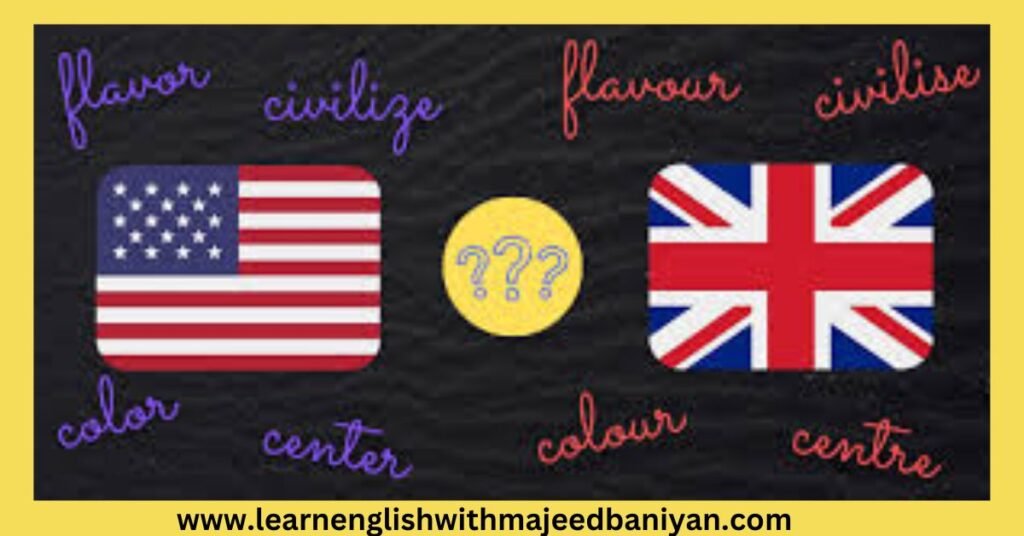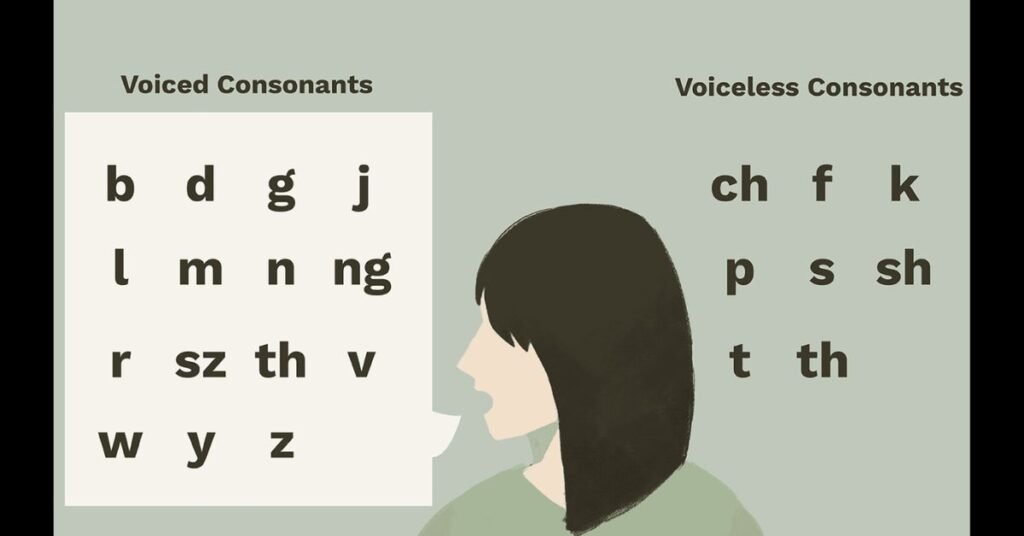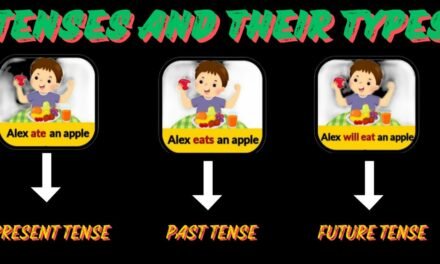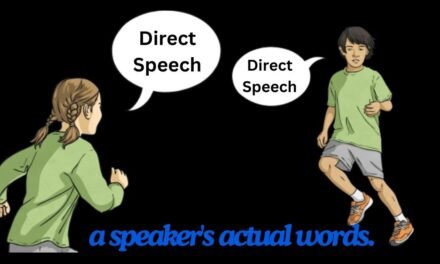Spelling Differences B/W US and UK English
Have you ever stumbled upon a perfectly written piece online, only to be thrown off by an unfamiliar spelling? Perhaps you saw “favourite” instead of “favorite,” or maybe “centre” took the place of “center.” These are just a few examples of the fascinating world of Spelling Differences B/W US and UK English. While both dialects share the same core vocabulary and grammar, these subtle variations can cause confusion, especially for those new to the intricacies of the English language.
But fret not, word warriors! This post dives deep into the captivating history behind these Spelling Differences B/W US and UK English, explores the most common battlegrounds, and equips you with the knowledge to navigate this linguistic terrain with confidence. So, buckle up and get ready to discover the reasons behind these intriguing discrepancies, all while appreciating the rich tapestry that these Spelling Differences B/W US and UK English weave into the fabric of the English language.
Why the Divide? A Historical Perspective
The roots of these spelling discrepancies lie in the 18th century. Noah Webster, an American lexicographer, championed a simplified spelling system for American English. He aimed to create a distinct national identity and believed spelling should reflect pronunciation. This led to changes like replacing “-our” with “-or” (e.g., “colour” vs. “color”) and dropping unnecessary letters (e.g., “centre” vs. “center”).
Meanwhile, British English retained more of its historical spellings, reflecting the influence of languages like French and Latin. Additionally, the vast expanse of the British Empire meant spelling variations arose organically across different regions.
The Great Spelling Showdown: Common Battlegrounds
Here are some of the most common spelling battlegrounds between US and UK English, along with the reasons behind the differences:
-
“-re” vs. “-er”
This clash is all about pronunciation. American English favors “-er” for a softer sound (e.g., “center,” “theater”). British English often retains “-re” due to its Latin or French roots (e.g., “centre,” “theatre”).
-
“-ize” vs. “-ise”
This one can be tricky! Both “-ize” and “-ise” are widely accepted in British English (e.g., “realize” vs. “realise”). However, American English strictly uses “-ize” (e.g., “realize”).

-
Double Consonants
American English often removes a doubled consonant before adding a suffix (e.g., “traveled” vs. “travelled”). British English tends to keep the double consonant (e.g., “travelled”).
These are just a few examples, and there are many more! But remember, exceptions exist in both dialects (e.g., “metre” vs. “meter”).
Beyond the Basics: Other Spelling Divergences
Our exploration wouldn’t be complete without mentioning some additional spelling differences:
- Words with “u”: American English often omits the “u” after a hard “c” (e.g., “favor” vs. “favour”).
- Silent Letters: Some words have silent letters retained in British English but dropped in American English (e.g., “defence” vs. “defense”).
- Nouns vs. Verbs: Certain words change spelling depending on their function (e.g., “practice” (noun) vs. “practise” (verb) in British English).
Is There a “Correct” Way to Spell?
The beauty of language lies in its adaptability. Neither US nor UK English is inherently “correct.” Both are widely accepted and understood globally. The key is to be consistent within the chosen dialect for clear communication.
Here are some helpful tips:
- Know your audience: If you’re targeting a specific region, adapt your spelling accordingly.
- Use a dictionary: Dictionaries typically indicate accepted spellings for both US and UK English.
- Embrace technology: Many word processors offer automatic spell-checking for both US and UK English.

Beyond Spelling: Embracing the Nuances
Spelling differences are just one facet of the rich tapestry of US and UK English. Accents, vocabulary, and even grammar nuances can differ. Here are some additional points to consider:
-
Vocabulary:
Certain words have different meanings across the pond (e.g., “lift” (elevator) vs. “lift” (ride) or “biscuit” (cookie) vs. “biscuit” (scone)).
-
Grammar:
While the core grammar remains similar, there are subtle variations in areas like sentence structure and verb conjugation.
C0nclusion
In the ever-evolving world of language, few topics spark debate quite like the Spelling Differences B/W US and UK English. While both dialects share a common root, centuries of geographical separation and independent development have led to distinct approaches to written communication. Understanding these Spelling Differences B/W US and UK English isn’t just about which way is “better” – it’s about appreciating the historical and cultural factors that shaped these variations.
Think of Spelling Differences B/W US and UK English as a historical treasure map, each variation a clue to the language’s journey. Noah Webster, an American lexicographer, championed a simplified spelling system in the 18th century, aiming to create a distinct national identity for American English. This explains why American English often favors simpler spellings, like “-or” endings instead of “-our” (e.g., “color” vs. “colour”). British English, on the other hand, retained more of its historical influences, evident in spellings that reflect French and Latin roots (e.g., “centre” vs. “center”).
Ultimately, there’s no single “correct” way to approach Spelling Differences B/W US and UK English. Both dialects are widely accepted and understood globally. The key lies in consistency and clarity. When writing for a specific audience, tailor your Spelling Differences B/W US and UK English to match their expectations. Dictionaries and word processors can be invaluable allies, offering guidance and automatic spell-checking for both dialects.

So the next time you encounter a Spelling Differences B/W US and UK English, don’t fret! Embrace it as a fascinating window into the rich history and vibrant tapestry of the English language.
For more knowledge click the links given below! I have also written posts on Idioms for emotions, Idioms for jobs, Idioms for business, Idioms for relationships, Idioms for love, Idioms for fun, Idioms for education, Idioms for health, Idioms for success, Idioms for colors, Also posts on UK vs US English differences. American and British English Differences, idioms differences in British and American English You can just click and read these posts.









Hiya very cool blog!! Guy .. Excellent .. Amazing .. I’ll bookmark your site and take the feeds additionally…I’m glad to seek out a lot of helpful information right here within the submit, we’d like work out extra strategies on this regard, thanks for sharing. . . . . .
I have been browsing online greater than 3 hours these days, yet I by no means found any attention-grabbing article like yours. It is beautiful price sufficient for me. Personally, if all website owners and bloggers made good content material as you did, the net can be much more useful than ever before. “Dreams have as much influence as actions.” by Stephane Mallarme.
I see something genuinely interesting about your weblog so I saved to bookmarks.